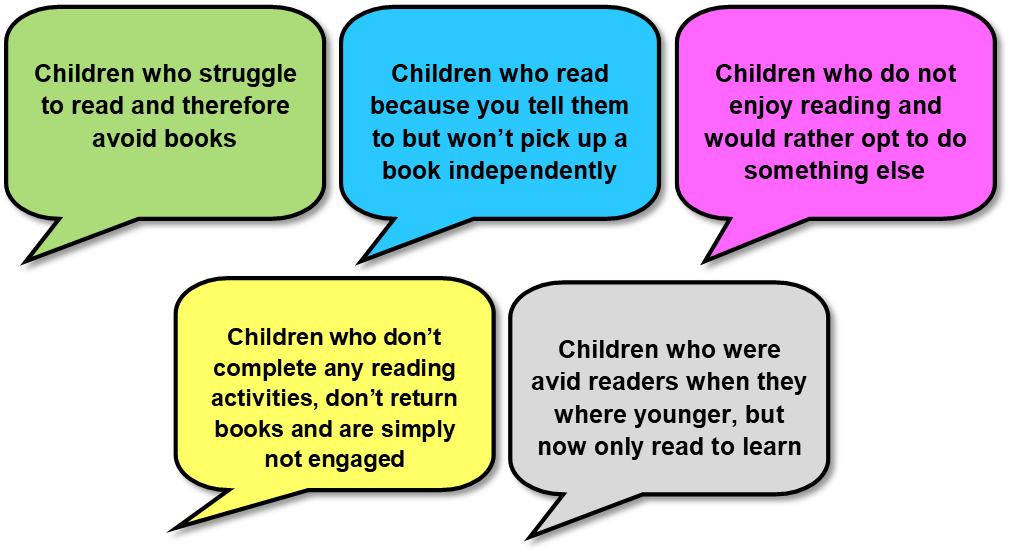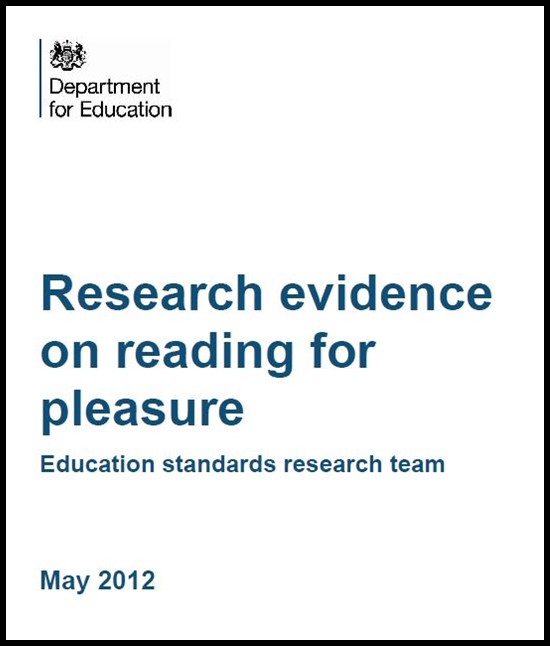Encouragement
What is encouragement and why is it important?
We recognise encouragement to cover:
- Opportunities to maintain children’s enthusiasm for reading.
- Ways to engage and motivate the reluctant reader.
- Opportunity to see reading as the reward rather than a goal that must be completed to achieve a reward.
Evidence for reading encouragement/motivation.
- Reading motivation has a positive impact on children’s reading skills and achievement over time.
- Children that are highly motivated to read, spend more time on independent reading activities.
- Motivating reluctant readers helps readers to become proficient readers.
Further reading
McKenna, M.C., Ellsworth, R.A. and Kear, D.J. (1995). Children’s attitudes toward reading: A national survey. Reading Research Quarterly, 30, 934-956. reading_for_pleasure.pdf (publishing.service.gov.uk)
What can we do for reluctant readers?
We can all picture reluctant readers:
We recognise that if children do not enjoy reading when they are young, then they are unlikely to do so when they get older. In order to reap the benefits that reading for pleasure can bring, schools/settings need to plan innovative ways to motivate and encourage children’s enthusiasm for reading.
Internal and external Encouragement:
There is an ongoing debate surrounding the benefits of internal versus external rewards. The findings tending to address the following considerations:
- Fostering a positive attitude towards reading.
- Empowering and equipping children to see themselves as a reader.
- Having a clear, specific, achievable goal for reading.
- Effective parentship with parents.
Further reading:
Download:
Some reflective points to consider
Click on the links to find out more
- Does your team have a clear understanding of different benefits that internal and external rewards can have on children and their families?
- Do you use a balance of internal and external rewards to encourage reading?
- How do you support parents to understand the immediate benefits of reading and the positive impact they play?
- Do you show practical examples to support parents to identify and support reluctant readers?
- Are you able to build self-esteem through quick wins, independent reading activities?
- Do you ensure the activities you send home are tailored to meet individual needs?
- Are you making full use of technology to support children that have a preference to engage reading through this platform?
- Are you providing genuine reasons to read?
- Are you using books to tackle topical issues (Covid/bereavement/War)
Further reading:
Extrinsic vs. Intrinsic Motivation: What’s the Difference? (verywellmind.com)
22 Strategies for Encouraging Students’ Intrinsic Motivation to Read (Opinion) (edweek.org)
https://www.readingrockets.org/article/tips-encouraging-kids-read










